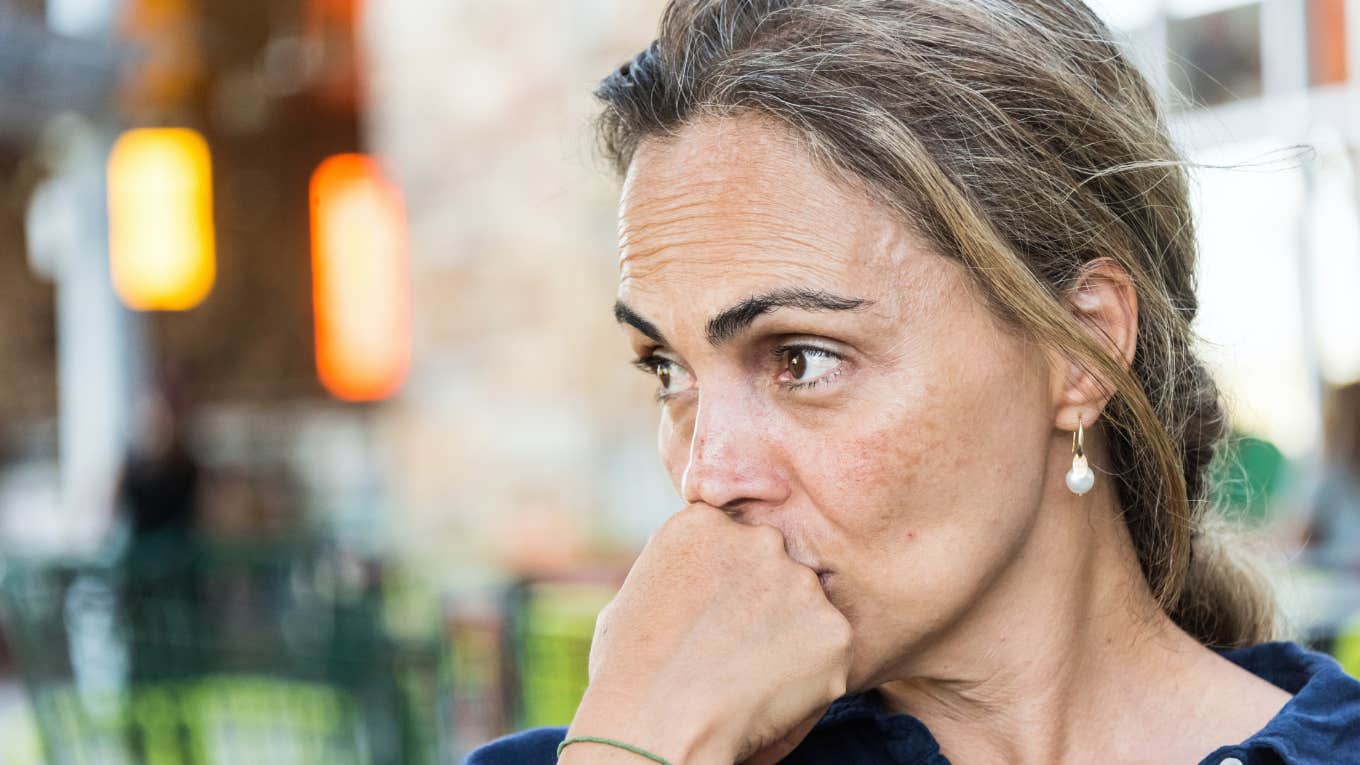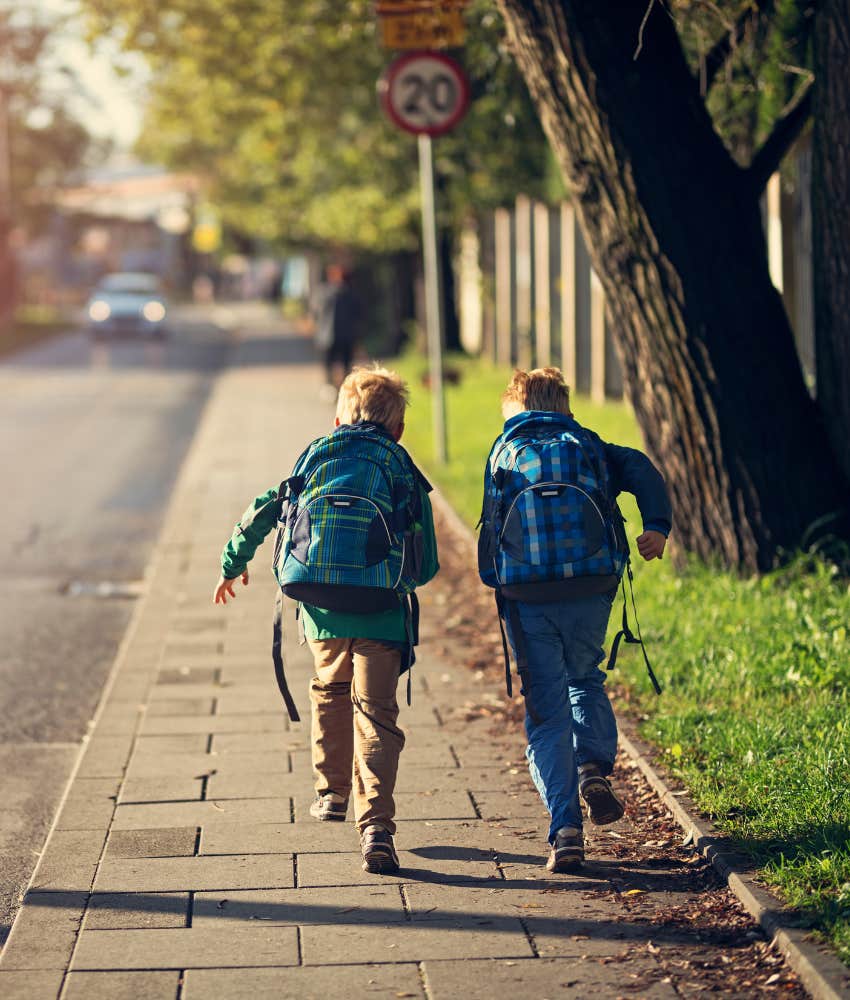Former 'Latchkey Kid' Worries She'll Traumatize Her Young Children If They're Left To Play Alone After School While She & Husband Work In The Next Room
Neglect and two hours of unsupervised play are two very, very different things.
 Juanmonino | Canva Pro
Juanmonino | Canva Pro One thing Gen X and elder millennial kids had during our childhoods was autonomy — and often too much of it. All those online jokes about running "feral" as kids with no supervision are not really jokes. Our parents really did give a level of leeway that seems frankly insane by today's standards.
That experience has made many of today's parents swing the pendulum way too far in the other direction, stopping just short of encasing their kids in bubble wrap each morning.
A thoughtful mom on Reddit is a perfect example. She is extremely worried that something totally normal — unsupervised playtime — will mess up her kids.
The former latchkey kid worries about leaving her kids to play alone after school while she and her husband work in the next room.
The mom's dilemma stems from a situation you don't hear about much anymore but will be instantly memorable to tons of Gen Xers and older millennials: she was a "latchkey kid."
For those who don't know, latchkey kids were the phenomenon of the '70s, '80s, and '90s in which children babysat themselves all alone after school after letting themselves into the house with a "latchkey," often worn around their necks.
It was standard practice back in the day, especially as more and more people divorced and many newly single parents couldn't afford after-school programs or daycare.
But by today's standards, it sounds utterly insane, especially given that kids often became "latchkey kids" at just 7 or 8 years old.
Or, as this mom put it in her Reddit post, "I was a latchkey kid and generally just left to my own devices (by today's standards, probably neglected)." And it's made her feel extremely worried about giving her kids even a small amount of autonomy after school to play literally in the next room while she and her husband wrap up their work-from-home days.
The former latchkey kid worries her kids will be traumatized by feeling 'totally ignored' and never forget the experience.
The mom admitted she feels "silly" worrying about this, but she can't quite shake it, especially since her kids are "the exact opposite" of how she grew up. "They've had au pairs or nannies since day one," she wrote. "We transitioned to 'aftercare' at school six weeks ago."
But her kids aren't enjoying the aftercare experience, and she and her husband aren't enjoying paying for it. "Here is my ridiculous question," she wrote. "Is it neglectful parenting to allow my boys to walk home from school at 2:30 p.m. and figure life out on their own until 5 p.m.?"
 Imgorthand | Canva Pro
Imgorthand | Canva Pro
It would be one thing if she and their dad worked at an office. But they both work from home! Still, she can't shake the fear that her kids will feel neglected like she did as a latchkey kid — and that it will be a lasting bad memory for the rest of their lives. "I'm worried that they will remember being totally ignored by us for hours when they get home," she wrote.
Her worries aren't unreasonable given how neglected many latchkey kids were. But scientists say kids actually NEED independence to develop.
I speak from experience. While being a latchkey kid definitely had its upsides (what kid wouldn't want the freedom to lawlessly run amok for 2-3 hours every day?), it really is an insane chapter of American history. Leaving a 7-year-old home alone every day? Seriously?
That's not to impugn parents who did it. My mom never had any other option. But being a latchkey kid was often a terrifying experience. I remember being petrified by every creak of the house, certain it was a burglar.
In third grade, I once had to fend for myself in the midst of a violent thunderstorm and tornado warning that knocked out the electricity.
That this was just standard operating procedure that none of our boomer and silent generation parents batted an eye at is truly insane. Seven, 8, 9 years old is too young for a kid to be in charge of themselves. But there is a HUGE difference between the neglect of a latchkey kid and two unsupervised hours while your parents are in the other room!
Especially since child development experts, psychologists and other scientists say it's actually GOOD for kids to be left to their own devices — within reason, of course. A University College of London study, for example, found that kids who are allowed unsupervised time, including leaving the house on their own, have better social skills, are more active and more confident.
Allowing a kid independence has also been shown to be beneficial for child development when it comes to skills like resilience and problem-solving, as well as warding off mental health problems like depression and anxiety — and studies have found a link between both conditions and so-called "helicopter parenting."
It's totally understandable to worry that you're not doing enough for your kids, especially if you're part of the generation whose parents needed literal PSAs on the TV every night to remind them they even HAD children! (Seriously, what was going on with boomer parenting?!)
But independence is a good thing. It's how they learn and grow. It's also how you as a parent keep from losing your mind by having to hover over them 24 hours a day! Give them some leeway — and give yourself a break.
John Sundholm is a news and entertainment writer who covers pop culture, social justice and human interest topics.

